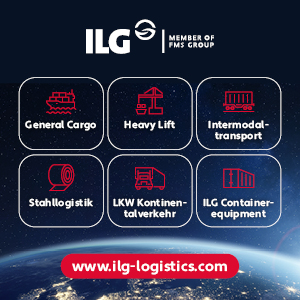Supply chain executives expect an uptick in emerging markets growth in 2016, despite concerns about further slowing in China, fluctuations in oil prices, and the possibility that the U.S. economy could weaken.
After a year of turbulence, 61% of logistics industry executives surveyed say they are unclear on the direction of the global economy or expect more volatility in 2016. In spite of their wariness, roughly the same proportion (59.4%) say the International Monetary Fund forecast of 4.7% growth in emerging markets is “about right.” Emerging markets grew an estimated 3.6 % to 4.2% in 2015, down from 4.5% in 2014.
The results are part of a new survey of more than 1,100 global logistics and supply chain executives in the 2016 Agility Emerging Markets Logistics Index. The Index, in its 7th year, offers a snapshot of logistics industry sentiment and ranks the world’s 45 leading emerging markets based on their size, business conditions, infrastructure and other factors that make them attractive to logistics providers, freight forwarders, shipping lines, air cargo carriers and distributors.
For the first time, supply chain professionals surveyed see India – rather than China – as the emerging market with the most growth potential. And in the overall Index rankings, which are based on economic and social data, India climbed two spots to No. 3, behind only China and United Arab Emirates (UAE), on strong economic performance and initial reforms launched by the government of Prime Minister Narendra Modi.
China, the world’s second-largest economy, remains the leading emerging market by a large margin. Among the countries at the top of the Index rankings, UAE (No. 2), India (3) and Malaysia (4) leaped over the commodity-dependent economies of Saudi Arabia (5), Brazil (6) and Indonesia (7). Rounding out the top 10 were Mexico (8), Russia (9) and Turkey (10).
Nigeria (No. 17) and Egypt (No. 22) climbed 10 spots in the data-driven portion of the Index, the biggest gains by any country in seven years of rankings. The potential of Nigeria, Africa’s largest economy, has come into sharper focus since the government updated the methods it uses to track economic performance. Egypt’s economy and business climate have stabilized under its military government.
Other Index findings:
- UAE, home to the powerhouse economies of Dubai and Abu Dhabi, has the best business climate and the best “connectedness,” a measure of infrastructure and transport connections, of any emerging market. As a result, UAE ranks as the world’s No. 2 emerging market after China, even though China’s economy is 25 times larger; India’s is five times larger; and Brazil’s is six times larger.
- The most business friendly conditions are found in Gulf states. UAE, Qatar and Oman have the best business climates – a combination of market access and risk, regulation, foreign investment, urbanization and wealth distribution. Other Gulf states also rank near the top in business conditions: Saudi Arabia (No. 5), Kuwait (9) and Bahrain (11).
- UAE, Malaysia, China, Chile lead in “connectivity,” meaning they have the best infrastructure and transport links, along with the most efficient customs and border administration.
- Countries in Latin America are losing ground to other emerging markets as a result of recession and political turmoil in Brazil, the region’s biggest economy, and depressed prices for commodity exports. Of the 10 countries that slipped furthest in the Index, six are in Latin America: Peru, Argentina, Uruguay, Brazil, Colombia and Venezuela. Even so, Chile continues to be the top-ranked emerging market with GDP under USD 300 million.
- Russia, hurt by Western sanctions and isolated economically since it began backing rebels in Ukraine and intervened militarily in Syria, fell from No. 7 to No. 9 in the Index. Tension with Russia and the loss of economic output in the breakaway Crimea region have hurt Ukraine, as well. Ukraine fell four spots in the Index to No. 34.












